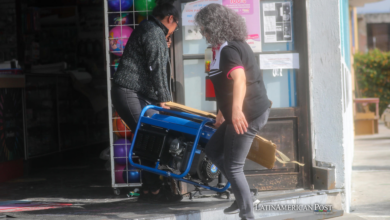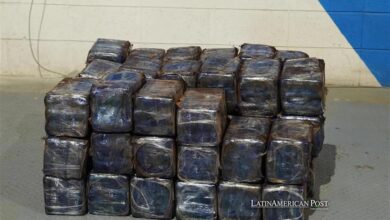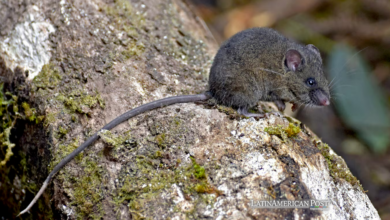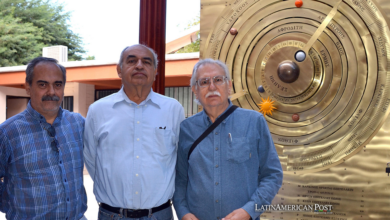Columbus Day?: Three Indigenous Women Explain the Disputed Narrative About October 12
Colombus Day is increasingly controversial. Reflections on colonization and indigenous genocide have changed the tone of this date. Here, three indigenous women explain what they call "a contested narrative".

Photos: Llanquiray Painemal, Josefa Sánchez and Ninari Chimba
Ana Báez and Ailén Desirée Montes | EFE
Listen to this article
Leer en español: ¿Día de la raza?: Tres mujeres indígenas explican la narrativa en disputa sobre el 12 de octubre
“Columbus Day”, “Hispanic Day”, “Day of Indigenous Resistance”, October 12 historically changed its name to maintain its validity. Three women of Mapuche, Zoque and Kichwa origin explain to EFE through their experiences why there is “a disputed narrative” around this date.
Llanquiray Painemal is Mapuche and perceives herself as an activist who defends “the place where she is from”, Coihue Painemal, in Chile, a community located in Wallmapu, the territory of her ethnic group, which has spent a lifetime in resistance for its recognition.
For Painemal, the celebration of October 12 should have a more "critical" meaning, because the history of resistance of her community is an example of how many times "indigenous people are talked about as if they no longer existed."
“They talk about you as if you were from the past. That is very strong violence for us. You grow up in schools that have a colonial mentality and deny our entire history," she says.
However, she highlights that “there is a new generation of young Mapuches who are correcting their own history,” since they have “managed to reach universities and be recognized within the Western system.”
More than 6,000 kilometers away from the community of Painemal, Josefa Sánchez, a Mexican of Zoque origin, is an example of what the Mapuche activist mentioned.
Sánchez investigates in the national archive in Mexico, in the general archive of Central America located in Guatemala, in the archive of the Indies in Spain and in the national library of France "the essential titles" to "recover the ancestral lands of his community in San Miguel Chimalapa", located in the state of Oaxaca.
“In this way I help my community when facing litigation” she comments after ensuring that these documents have “legal validity.”
Read also: Exceptional Regime in El Salvador: This Is How State Violence Against Women Has Intensified
Like Sánchez, the Kichwa indigenous activist Ninari Chimba in Ecuador also works in the educational sector, but as a teacher in the first indigenous school in the city of Quito and one of her main functions is to review the pedagogy and materials with which they are taught. to the infants.
“What we do as teachers is open paths for children through educational guides that awaken and cultivate memory,” he comments.
She insists that “with sensitivity, early childhoods can discern between the knowledge of the modern West and their own history” and it is thus that for the young teacher “reparation is made, with an education dedicated to epistemic, social, ecological, spiritual and linguistics".
Take charge of history
When asked what can be done collectively to “change the narrative,” Painemal responds that “it is not about personal guilt, but about taking charge of history.” The three agree that Humanity must “take charge,” because the story as it is being told has “repercussions” in the present.
“When we touch on this issue we claim it, we break it down and thus we are able to see the consequences that continue to permeate to this day. October 12 is not to celebrate, it is to restore and regenerate the future,” states Chimba.
For his part, Sánchez explains that these “consequences” translate into “the conflicts of dispossession, extractivism and racism” that indigenous people face.
She also suggests that to decipher these “keys to the past,” it is important to “ask ourselves new questions” by adding “other narratives” to the debate on this commemoration.
For her part, Painemal argues that in this way indigenous peoples who “historically have been in resistance” will be able to “live in peace.”
One task that Llanquiray Painemal, Josefa Sánchez and Ninari Chimba agree on to rethink history is to offer discussions as they did recently in the “Decolonize history” panel organized by the NGO Survival International in Madrid.





